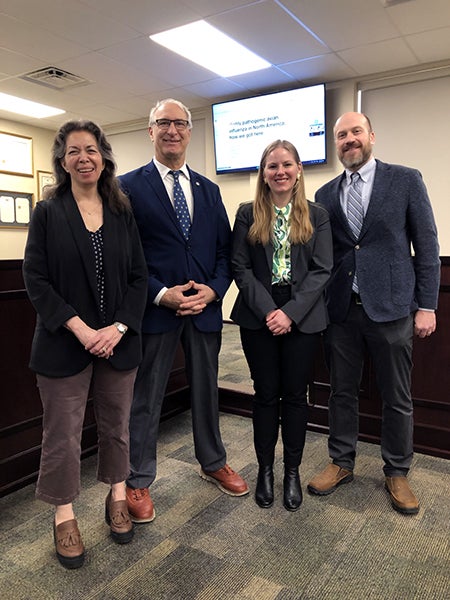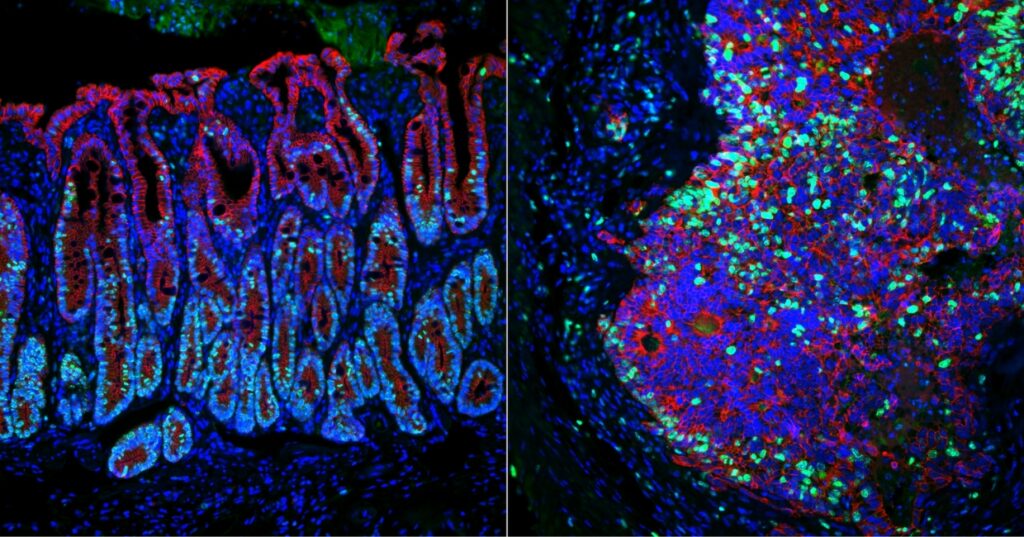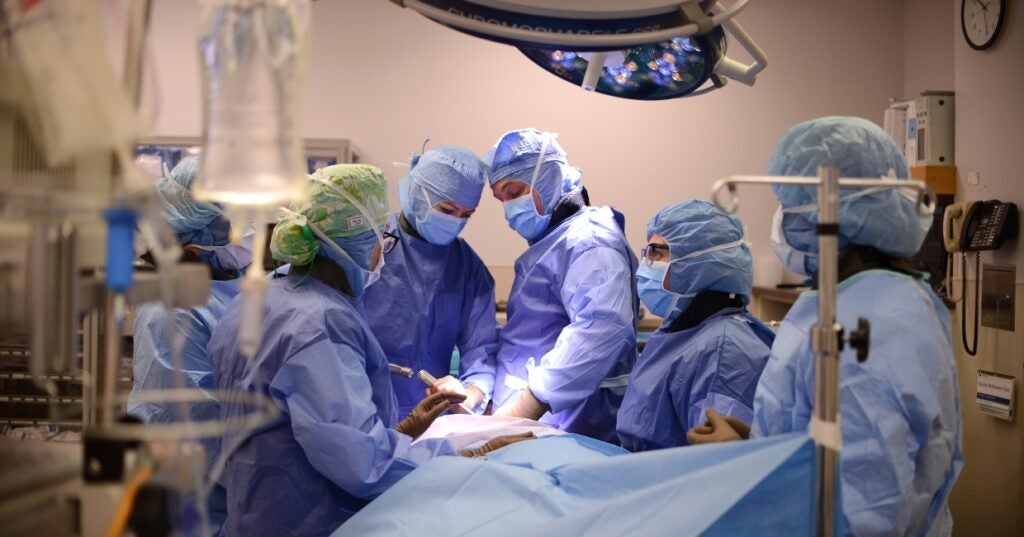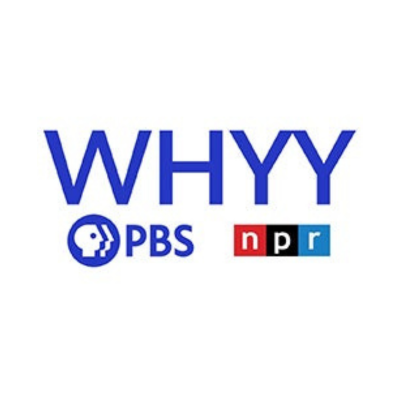University of Pennsylvania Avian Influenza Experts Provide Briefing to Pennsylvania Policy Makers

As concerns about the highly pathogenic avian influenza (HPAI) outbreak continue to grow, experts from the University’s School of Veterinary Medicine (Penn Vet) and Perelman School of Medicine (PSOM) visited the Pennsylvania State Capitol to brief the General Assembly on the University of Pennsylvania’s (Penn) response efforts.
The delegation comprised Penn Vet’s Gilbert S. Kahn Dean of Veterinary Medicine, Andrew Hoffman, DVM, DVSc, DACVIM; Assistant Professor of Pathobiology Louise Moncla, PhD; Professor of Toxicology Lisa Murphy, VMD, Director of the Pennsylvania Animal Diagnostic Laboratory System at New Bolton Center (PADLS-NBC); and PSOM’s Professor of Microbiology Scott Hensley, PhD. They addressed lawmakers during a briefing to Pennsylvania Senate members and staff on February 5, and a joint informational meeting of the Pennsylvania House Agricultural and Rural Affairs Committee and the House Health Committee on February 26. Their testimony emphasized the urgency of the situation and the need for a coordinated, science-based response.
Hoffman opened the hearings by describing the scale of the bird flu crisis. Since its introduction to the United States in 2022 and subsequent spread across North America, over 62 million birds have been culled because of avian influenza. In March 2024, HPAI jumped to dairy cows, and has since spread to 980 herds, mostly in California. Hoffman highlighted the reasons why testing, surveillance, and basic research on HPAI are essential to mitigate economic and health impacts in animals and humans. He also stressed the importance of vaccination as one strategy to help protect livestock and high-risk individuals like farm workers and veterinarians, and the close collaborations between Penn and state and federal agencies.
Moncla used influenza “family trees” to explain how HPAI came to North America from Europe in 2022 and how it spread from wild birds to poultry farms, and spilled over into dairy cows, cats and people. Unlike previous outbreaks, which were largely confined to poultry, this strain has established itself in wild bird populations, creating a reservoir for continuous spillover into domestic animals and, potentially, humans. The virus’s ability to naturally reassort—swap genetic material with other flu strains—can create new variants, which have been linked to several severe human infections and numerous outbreaks in domestic animals across the country, including poultry in Pennsylvania.
Representing Penn Vet’s PADLS-NBC and Wildlife Futures Program, Murphy provided an update on HPAI testing in Pennsylvania for wild and domestic animals. She noted that her team had tested over 20,000 samples since the outbreak began, including more than 300 from wildlife. Murphy emphasized the importance of continued collaboration with state and federal agencies, highlighting the field-based surveillance efforts of the Wildlife Futures Program in partnership with the Pennsylvania Game Commission. While expressing pride in Pennsylvania’s strong disease surveillance system, she underscored the strain that this outbreak places on laboratory capacity to manage the ongoing outbreak effectively.
HPAI’s Potential Impact on Human Health
Hensley concluded the hearings by discussing HPAI’s impact on human health. He noted that while nearly 70 human infections with H5N1 bird flu viruses have been reported in the United States, the current risk of infection remains low, with no evidence of sustained person-to-person transmission. He stressed the importance of continued surveillance and monitoring for mutations that may lead to enhanced infection in humans and the potential for human-to-human spread.
He also spoke about his work developing an H5N1 vaccine using mRNA technology, which has the potential to be manufactured much faster than current influenza vaccines. Conventional vaccines take months to produce through a cumbersome process of growing vaccine strains in fertilized chicken eggs. His own studies have shown that an experimental mRNA vaccine can completely protect animals against infection with H5N1 virus. Although the vaccine is in the initial stages of development and needs to undergo rigorous testing and approval, it has the potential to reduce the impact of this infection in livestock and people.
Safeguarding Pennsylvania through Scientific Research and Disease Surveillance
Lawmakers expressed gratitude for the Penn delegation’s expertise and engagement, and their questions reflected deep concern for their constituents. Members of both parties expressed alarm over the outbreak’s economic and public health impact, particularly its threat to Pennsylvania’s $7 billion poultry industry and the potential for another pandemic in the wake of COVID-19. Representative John Lawrence highlighted the importance of exploring sustainable and resilient agricultural models, the need to address rising egg prices, and the challenges of large-scale poultry operations. House Agriculture and Rural Affairs Chair Eddie Day Pashinski emphasized the importance of ongoing dialogue and collaboration with Penn, and Representative Bridget Kosierowski underscored the need for continued research, vaccination efforts, funding, and partnerships.
The hearings took place amid increasing uncertainty over ongoing federal support for scientific research and disease surveillance. These actions have created worry for researchers like Moncla and Hensley, who rely on federal funding for their work, and Murphy, whose laboratory is part of the National Animal Health Laboratory Network. State legislative committee members of both parties expressed continued support for surveillance and testing, which will be key to controlling this outbreak.
Since the start of the outbreak, Penn Vet’s Institute for Infectious and Zoonotic Diseases (IIZD) has played a pivotal role in uniting researchers and clinicians across Penn to combat HPAI. The hearings before the Pennsylvania General Assembly were a direct result of a brainstorming session hosted by IIZD in June 2024, held to address the urgent need for a coordinated response to the HPAI outbreak. As a result, IIZD established an HPAI working group that meets monthly to share research, address challenges, and develop strategies to mitigate the virus’s spread and impact. This initiative has already led to new collaborations and projects that span basic research and veterinary medicine.
As the HPAI outbreak continues to evolve, the work of IIZD and its collaborators remains more important than ever. Through research on viral transmission, expanded testing and surveillance, and advancements in vaccine development, Penn is working to address the current outbreak while strengthening preparedness for future threats. As the HPAI outbreak continues to evolve, the work of IIZD and its partners at Penn and within state and federal government underscores the role of science to safeguard animal and human health.

Related News

Identifying genes that keep cancer from spreading (link is external)
Using a novel approach, Penn Vet’s Chris Lengner and M. Andrés Blanco and colleagues have identified two genes that suppress colorectal cancer metastasis.

Penn Vet’s Total Hip Replacement Program Helps Heal Dogs With Hip Dysplasia So They Can Live ‘Their Best Lives’
Stephanie and Michael Fullmer fell in love with Cora, a sweet-natured rescue Golden Retriever, as soon as they saw her photo. And Cora loved back – kids, kittens, other dogs,…
About Penn Vet
Ranked among the top ten veterinary schools worldwide, the University of Pennsylvania School of Veterinary Medicine (Penn Vet) is a global leader in veterinary education, research, and clinical care. Founded in 1884, Penn Vet is the first veterinary school developed in association with a medical school. The school is a proud member of the One Health initiative, linking human, animal, and environmental health.
Penn Vet serves a diverse population of animals at its two campuses, which include extensive diagnostic and research laboratories. Ryan Hospital in Philadelphia provides care for dogs, cats, and other domestic/companion animals, handling more than 30,000 patient visits a year. New Bolton Center, Penn Vet’s large-animal hospital on nearly 700 acres in rural Kennett Square, PA, cares for horses and livestock/farm animals. The hospital handles more than 6,300 patient visits a year, while our Field Services have gone out on more than 5,500 farm service calls, treating some 22,400 patients at local farms. In addition, New Bolton Center’s campus includes a swine center, working dairy, and poultry unit that provide valuable research for the agriculture industry.

